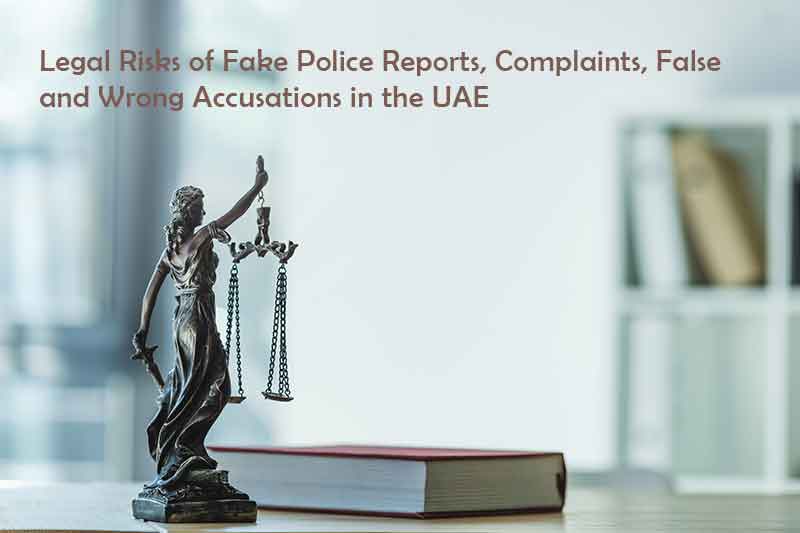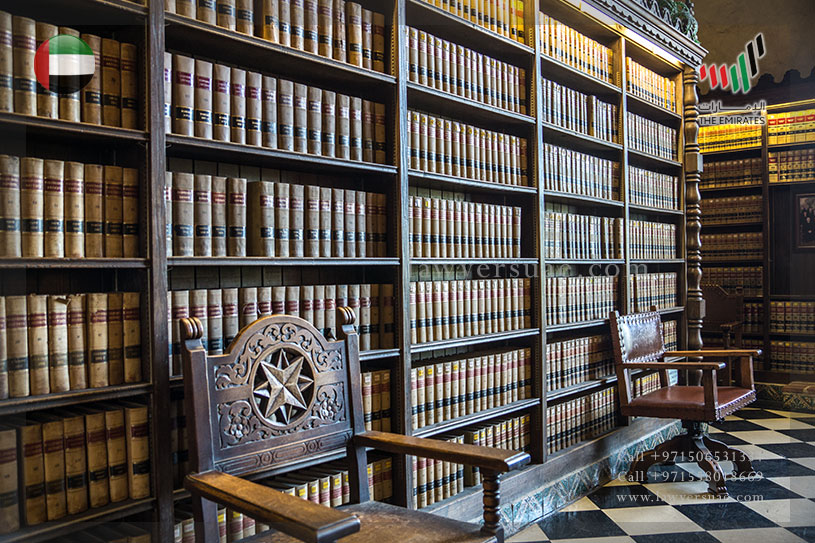Filing false police reports, fabricating complaints, and making wrongful accusations can have serious hopena pili kānāwai in the United Arab Emirates (UAE). This article will examine the kanawai, nā hoʻopaʻi, a nā pilikia surrounding such acts under the UAE ʻōnaehana kānāwai.
What Constitutes a False Accusation or Report?
A false accusation or report refers to allegations that are intentionally fabricated or misleading. There are three main categories:
- Events did not occur: The reported incident did not happen at all.
- Kuhi hewa: The incident occurred but the wrong person was accused.
- Misconstrued events: The events did happen but were misrepresented or taken out of context.
Simply filing an kumu ole or unconfirmed complaint does not necessarily mean it is false. There must be evidence of willful fabrication or falsification of information.
Prevalence of False Reports in the UAE
There are no precise statistics on false reporting rates in the UAE. However, some common motivations include:
- Revenge or retaliation
- Avoiding liability for actual misconduct
- Ke ʻimi nei i ka manaʻo a i ʻole ke aloha
- Mental illness factors
- Coercion by others
False reports waste police resources on wild goose chases. They can also severely impact the kūlana a ke kālā no of innocent people wrongly accused.
Laws Regarding False Accusations and Reports in the UAE
There are several laws in the UAE kalaima kalaima that apply to false allegations and reporting:
Article 266 – Submitting False Information
This prohibits people from knowingly giving false statements or information to judicial or administrative authorities. Offenders face hoopaahao a i 5 mau makahiki.
Articles 275 and 276 – False Reports
These deal with fabricated complaints made specifically to law enforcement officials. Depending on severity, consequences range from ke olonā up to tens of thousands of AED and over a year of jail time.
Defamation Charges
People who falsely accuse someone of a crime they did not commit could also face kuleana kīwila for defamation, resulting in additional penalties.
E kelepona mai iā mākou i kēia manawa no kahi hālāwai wikiwiki ma 971506531334 + 971558018669 +
Making False Accusation Charges Against Someone
If you are the victim of a false report, it is best to contact a criminal lawyer in the UAE. Proving willful deceit rather than just inaccurate information is key. Helpful evidence includes:
- Nā moʻolelo ʻike maka
- Audiovisual recordings
- Electronic records
Police and prosecutors have wide discretion over filing formal charges against false claimants. It depends on the availability of evidence a me ka oolea of damage caused.
Other Legal Recourse for the Falsely Accused
Beyond criminal prosecution, people harmed by false complaints can pursue:
- Nā hihia kīwila – To claim monetary damages for impacts on reputation, expenses, emotional distress etc. Burden of proof is based on a “balance of probabilities”.
- Defamation complaints – If the allegations caused reputational harm and were shared with third parties.
Recourse options should be carefully evaluated with an experienced UAE litigator.
Key Takeaways on Legal Risks
- Fake reports often carry stiff hoopaahao nā huaʻōlelo, ke olonā, or both under UAE law.
- They also open up civil liability for defamation and damages.
- The wrongly accused can pursue criminal charges and lawsuits under certain conditions.
- Filing a false complaint causes severe stress and unfair mistreatment.
- It squanders police resources needed for fighting genuine crimes.
- Hilinaʻi lehulehu in law enforcement suffers, which benefits criminals.
Expert Opinions on False Accusations
“Filing a false police report is not only irresponsible, it’s a serious crime that can have devastating consequences for both the accused and the community.” – John Smith, Legal Expert
“In the pursuit of justice, truth must prevail. By holding individuals accountable for false reports, we safeguard the integrity of the legal system.” – Susan Miller, Legal Scholar
“Remember, a single accusation, even if proven false, can cast a long shadow. Use your voice responsibly and with respect for the truth.” – Christopher Taylor, Journalist
Pinepine ninau ninaninau 'ana i
Q: What are common penalties for false reporting in the UAE?
A: They range from fines of 10,000-30,000 AED and over a year in prison depending on severity under Articles 275 & 276. Additional civil liability is also possible.
Q: Can someone accidentally make a wrong accusation?
A: Giving inaccurate information by itself is not illegal. But knowingly providing false details to mislead authorities constitutes a crime.
Q: Does false reporting online have legal consequences?
A: Yes, fabricating allegations on websites, social media, email etc. still carries legal risks like offline false reporting.
Q: What should I do if I’m wrongly accused?
A: Immediately contact a specialized criminal lawyer in the UAE. Gather relevant evidence. Consider options like lawsuits for damages or formal defense against charges.
hope Words
Filing false complaints and making up allegations severely undermine UAE’s ʻōnaehana hoʻoponopono. It is important for residents to behave responsibly as accusers and avoid unfounded accusations. Members of the public also play a key role by pushing back against spreading fake reports online and offline. With prudence and honesty, people can protect themselves and their community.
E kelepona mai iā mākou i kēia manawa no kahi hālāwai wikiwiki ma 971506531334 + 971558018669 +

